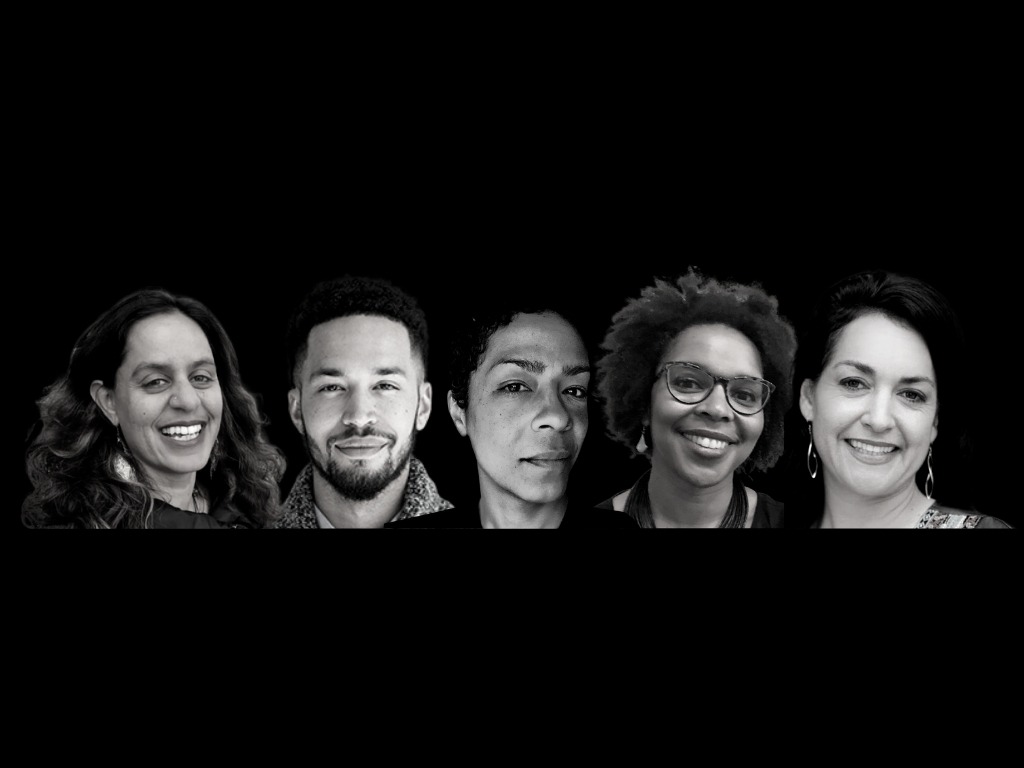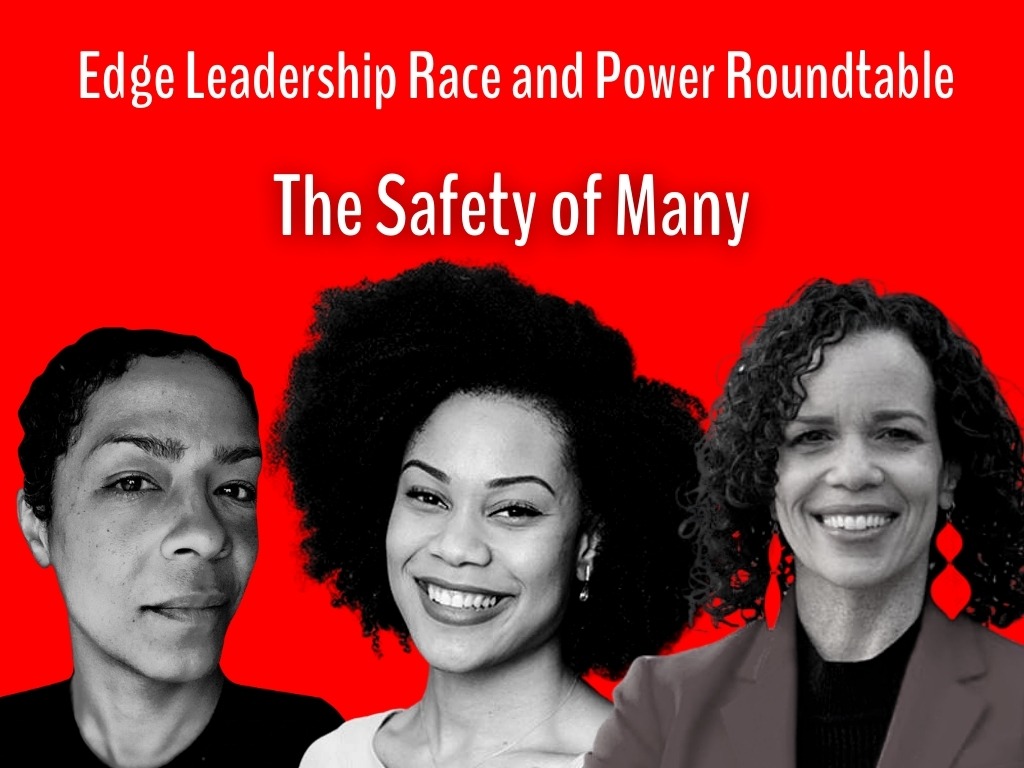Edge Leadership hosted a Race and Power Roundtable. In this clip, Noah Kruis, Cyndi Suarez, Kad Smith, and Manisha Patel share their thoughts on when centering whiteness is important, noticing power identities, and a call for real autonomy.
Noah Kruis: White supremacy is actually the fabric of which our American society is woven. Based in the work of legal scholar Andrea Smith, the pillars of white supremacy being Capitalism, Colonialism, and Orientalism. The way that those pillars work together to create this dominant white culture that shapes all of us. Even Crossroads, an institution that was founded 35 years ago as an anti-racist institution and has been led for the last 20 or so years by a team of women of color, we still are trying to figure out, how do we operate outside of that dominant white culture? Our leadership has been telling us we need to, in the work, be doing this analysis of what whiteness really is. This idea of decentering whiteness has allowed whiteness to go out of the spotlight, when what we need to examine is that culture of white supremacy and that culture of whiteness that is the cause for all of the oppression and so forth that we see.
And so I think that’s sort of like this edge is, when you talk about power and the state of race, we need to, in doing this work, of course, center the voices of people of color and follow the leadership of people of color, but to the end of identifying, “What is this white dominant culture that is shaping all of us so much? And how can we imagine new ways of being that are shaped by multiple voices and find a shared humanity in all of that?”
Sign up for our free newsletters
Subscribe to NPQ's newsletters to have our top stories delivered directly to your inbox.
By signing up, you agree to our privacy policy and terms of use, and to receive messages from NPQ and our partners.
Cyndi Suarez: I love that you brought up these ideas of ways of being, because I think about that a lot. I have a piece that I wrote for NPQ last year that got reprinted this week called “A Cult of Democracy,” which starts to kind of look at, like, how do you build a democracy in a space that’s all about difference, right? Like, how do you actually build subjectivity that allows for you to live in that kind of space? Right? So, I’m taking your comment almost as a segue, because I think, you know, think about what to build. A lot of us don’t think about subjectivity as something to build, but it’s actually one of the things that needs to be rethought the most right now, from which a lot of other stuff grows. But I want to hear from others. You know, you’re out there doing this work, what do you think we need, moving forward? Where are we going? What do we need to do that?
Kad Smith: Cyndi, I think I’ve shared this with you, and most folks who come across me in my working capacity know how much your book kind of changed the way I think about framing power in a workplace. And you talk about how sometimes folks will assume powerless identities in an interaction, right? And one of the trends that I’m seeing and what we need more of is a rejection of powerlessness. So, if I’m thinking about the transferal of power in every single interaction I have in my life, my personal life, my working context…one, that’s a shit-ton of stuff to think about. Sorry, I’m not gonna be reductive and say it’s easy for me to have to wrap my head around just how power can be at play. And in fact, there’s some reasons why people want to escape that, I think. The weight of it all, right? But if I am thinking about it with some nuance and some sophistication of how power is at play, then it does afford me more chances to, like I said earlier, to speak plainly about what I am the recipient of, what my needs are. Monna [Wong] just brought up self-determination and how progressive and how rooted that is in a radical tradition, and I’m seeing the resurgence of that in people’s workplaces. Folks saying, “No, no, no, no, no. If we’re going to talk about agency and autonomy, I need to tell you what that means to me. And here’s how I would operationalize it. So don’t just put the word on a piece of paper or on a website without me being able to arrive at some meaning that I can then live into.” It’s that bridge between imagining something that makes sense for a collective of people, but also giving folks the space to say, here’s what it looks like in practice. And we need a lot more of that, in a more scalable way, but we are seeing it. I believe I’m seeing it, seeing the push for rejection of powerlessness, people actually saying, “Here’s what agency looks like for me, in a very, very tangible way. This is what I need for me to continue to believe that autonomy is something that you think that I should have in my work environment.”
Manisha Patel: Being a bit of a troublemaker and disrupter, I think, you know, having that power without authority, in a large system, when it’s just you…it’s lonely, it’s dangerous. And there’s not a wraparound or anything to look after you, and it can end up in quite a lot of trauma in the long term. So, I think you’re right; I think it’s about, how do we get people to understand their agency? And autonomy is not something somebody gives you. So, I really like the point that you’ve made. Also, I think, what you were saying, Noah, about whiteness, I think, really defining what whiteness is, but also whiteness for people of color. Because that is also a huge problem in our systems.
Edge Leadership began in 2020 with a series of in-person and online convenings. This article and multimedia story series features the thinking of Edge Leaders. Follow these talented, sector-crossing, forward thinking social change agents at @EdgeLeadership2020 on Instagram, via NPQ’s channels, and by joining our online platform experiment.












